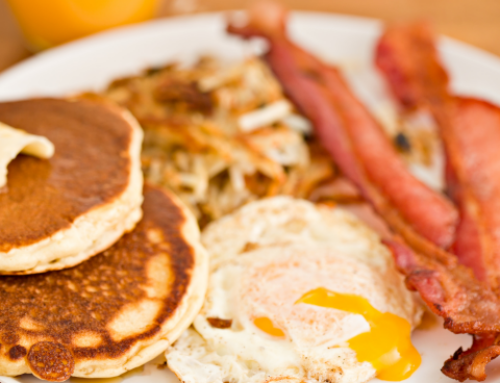Elite athletes know the importance of recovery nutrition. To replenish energy stores, repair and rebuild muscle, and rehydrate the body, it’s crucial to get the appropriate balance of macronutrients and liquids. But elite athletes aren’t the only ones who need to re-fuel properly after a hard workout. All athletes benefit from recovery nutrition. Unfortunately for some, it’s an opportunity often missed.
Maybe it’s lack of time or confusion about when or what to eat that prompts the detrimental decision to forgo post-workout nourishment. Enter the sports dietitian. Registered dietitians are experts in the field of sports nutrition who work hard to prepare athletes for competition. One meaningful lesson they teach their athletes is the importance of recovery nutrition. They know the value that recovery foods provide.
I asked several of my favorite sports dietitians to share their favorite recovery foods. They provided simple and delicious choices.
1. Nuts (preferably almonds and walnuts)
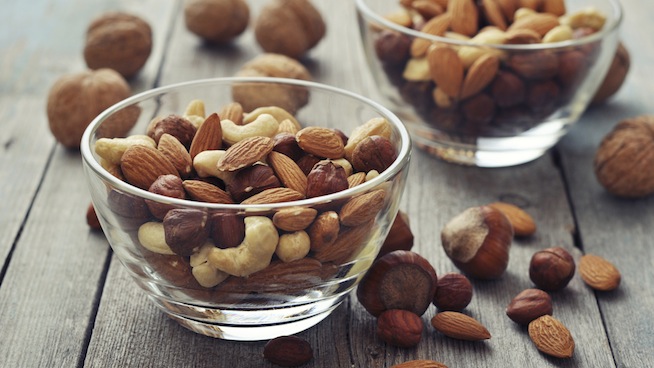
Expert: Torey Armul, MS, RD, CSSD, Nutrition and wellness counselor and consultant, spokesperson for the Academy of Nutrition and Dietetics, based in Chicago, Illinois.
Why: Armul believes that nuts are a valuable recovery food because they supply protein—and “protein is important after a workout, since it helps with muscle recovery and muscle fiber rebuilding and repair.” She explains that “our muscles are especially open for rebuilding in the 30 minutes after a workout, called the ‘recovery window,’ so look for a protein source that can be carried safely at room temperature in your car or gym bag.”
Armul likes almonds and walnuts because, not only are they a good source of protein, they also contain healthy omega-3 fats. And she has another good reason to include almonds in your diet. She says, “Recent research has linked almond consumption to lower cholesterol levels and reduced waist circumference and abdominal fat. For athletes and active individuals, this is a win-win!”
Check out the 7 best nuts for your health and performance.
2. Yogurt
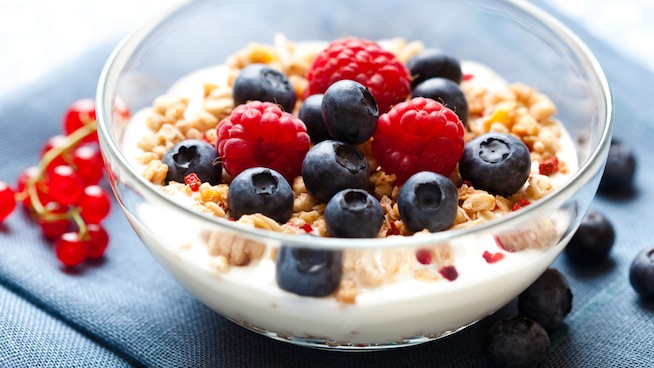
Expert: Leslie Bonci, MPH, RD, CSSD, LDN, Director of sports nutrition at the University of Pittsburgh Medical Center and sports dietitian for the Steelers, Pirates and Penguins, University of Pittsburgh Department of Athletics, Pittsburgh Ballet Theatre and Toronto Blue Jays.
Why: Bonci says yogurt is an ideal recovery food because it’s a good source of protein and carbohydrates. She also like it because of its versatility. It’s a food that can be eaten “as is” or can be topped with other healthful ingredients such as nuts and whole grain cereals. She also likes that yogurt is semi-solid, making it “easier to digest after a hard workout.”
3. Chocolate Milk
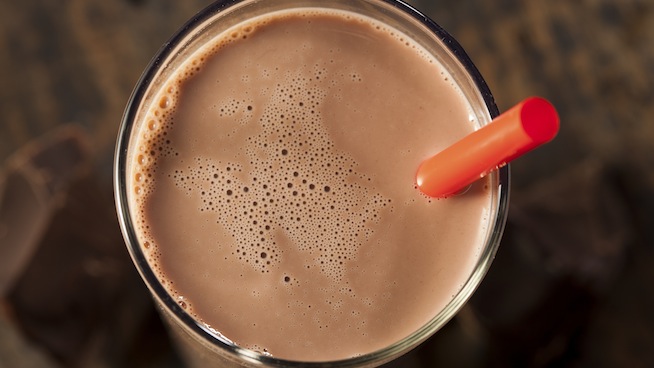
Expert: Nancy Clark, MS, RD, CSSD, Sports nutritionist with a private practice in the Boston area, author of the best-selling Nancy Clark’s Sports Nutrition Guidebook.
Why: Yes, it’s true, chocolate milk can be an ideal recovery food. Clark loves chocolate milk because it’s a good source of sodium (an important electrolyte lost in sweat), carbohydrates and high-quality protein. Beyond that, she likes that chocolate milk is accessible, doesn’t cost much and tastes good.
RELATED: Why Chocolate Milk Is a Great Recovery Drink
4. Scrambed Eggs with a Baked Sweet Potato and Stir Fried Pepper and Onions
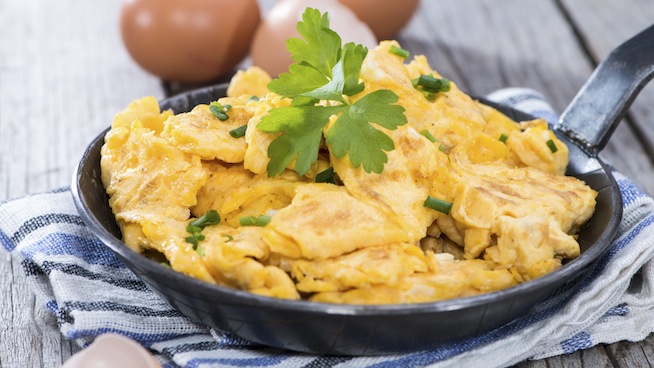
Expert: Jessica Crandall, RDN, CDE, National Spokesperson for the Academy of Nutrition and Dietetics, Denver Wellness and Nutrition, Sodexo GM.
Why: For those who are willing to do the work, this is an excellent recovery food combination. Crandall likes it because it’s full of “good protein and complex carbohydrates as well as rich in vitamins and minerals. The protein helps to repair, and complex carbohydrates help to re-energize.”
5. Greek Yogurt
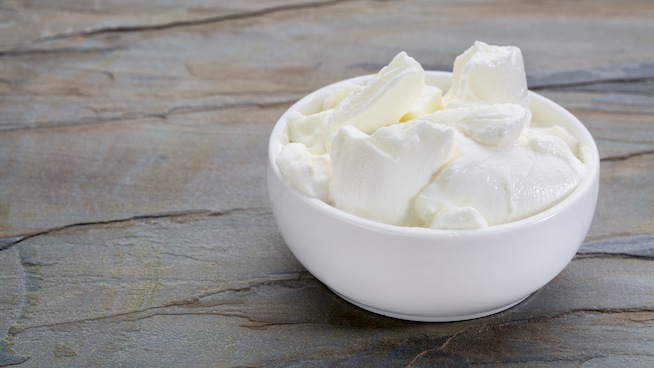
Expert: Angela Lemond, RDN, CSP, LD, Academy of Nutrition and Dietetics spokesperson and owner of Lemond Nutrition in Plano, Texas.
Why: Lemond recommends Greek yogurt to her athletes because it’s a great source of whey protein. She says, “Whey protein provides a great nutritional package of essential amino acids, which we must get from food because our bodies cannot produce them, which are well-suited for muscle recovery and reducing muscle injury time.”
She also likes Greek yogurt because it’s a versatile and portable food. She recommends choosing a variety with no added sugar. Instead, sweeten it by topping it with fresh or frozen fruit.
RELATED: Types of Yogurt: What’s New and What’s Best for Athletes
6. Turkey Wrap with Chicken Noodle Soup
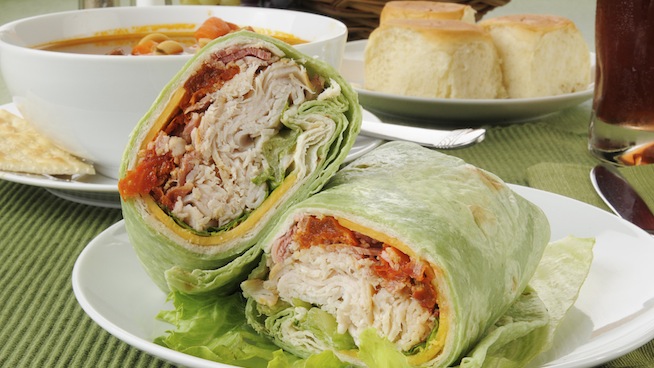
Expert: Heather R Mangieri, MS, RD, CSSD, Owner and Nutrition Consultant, Nutrition CheckUp, LLC, Board Certified Specialist in Sports Nutrition, spokesperson for the Academy of Nutrition and Dietetics.
Why: Mangieri believes a turkey wrap and soup combo is the perfect food pairing for post-exercise recovery. “The body loses sodium through the sweat that is lost after extensive exercise. A turkey wrap with a cup of soup not only provides the carbohydrates and protein necessary for recovery, but it also helps to replenish fluid and sodium losses that likely occurred.”
Another bonus—soup is easily tolerated, making it an ideal choice for athletes who have difficulty eating after a hard workout.
7. Kefir Milk
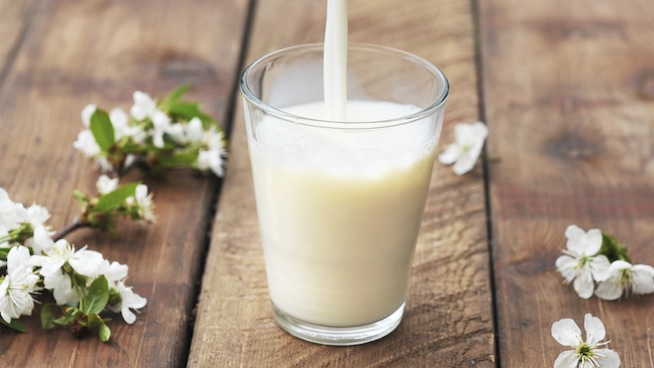
Expert: Jennifer McDaniel, MS, RDN, CSSD, LD, Owner of McDaniel Nutrition Therapy and Academy of Nutrition and Dietetics spokesperson.
Why: Kefir is a liquid, cultured milk product. McDaniel likes it because it’s literally “a drinkable recovery fuel.” It provides an ideal carbohydrate-to-protein ratio for recovery—a 1-cup serving of low-fat kefir contains 11 grams of protein and 20 grams of carbohydrates—and it aids in rehydrating. Because it’s 99 percent lactose-free, it’s a great option for those who are lactose-intolerant.
McDaniel also loves the “good bacteria” present in kefir. She says, “Kefir contains live active cultures which have been shown to reduce the number and length of colds and other infections suffered by endurance athletes. These [probiotics] also improve digestion, which is critical for athletes.”
8. Whole-Grain Cereal with Skim Milk and Banana Slices
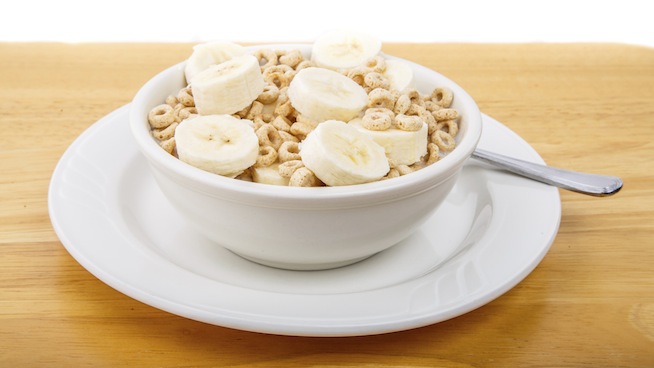
Expert: Jim White, RD, ACSM HFS, Academy of Nutrition and Dietetics spokesperson, owner of Jim White Fitness and Nutrition Studios.
Why: White loves this post-workout snack, and it scores high on his list of perfect recovery food combinations. He says it has an ideal balance, which “provides carbohydrates to replace low glycogen stores, protein to help increase muscle synthesis and prevent muscle breakdown, and electrolytes to help rehydrate the cells.”
As a bonus, White reminds us that “this snack offers disease-fighting nutrients such as fiber, calcium and vitamin D, which are essential to our overall health.”
RELATED: 10 Athlete-Approved, High-Protein Healthy Cereals
Want to learn more about recovery foods? Contact a sports dietitian in your area. Sports dietitians are experts in exercise nutrition, and they can provide trusted advice on how to nourish your body for optimal athletic performance. Learn more about the benefits of working with a sports dietitian here: Learn about the Sports Dietitian.
[cf]skyword_tracking_tag[/cf]RECOMMENDED FOR YOU
MOST POPULAR
Elite athletes know the importance of recovery nutrition. To replenish energy stores, repair and rebuild muscle, and rehydrate the body, it’s crucial to get the appropriate balance of macronutrients and liquids. But elite athletes aren’t the only ones who need to re-fuel properly after a hard workout. All athletes benefit from recovery nutrition. Unfortunately for some, it’s an opportunity often missed.
Maybe it’s lack of time or confusion about when or what to eat that prompts the detrimental decision to forgo post-workout nourishment. Enter the sports dietitian. Registered dietitians are experts in the field of sports nutrition who work hard to prepare athletes for competition. One meaningful lesson they teach their athletes is the importance of recovery nutrition. They know the value that recovery foods provide.
I asked several of my favorite sports dietitians to share their favorite recovery foods. They provided simple and delicious choices.
1. Nuts (preferably almonds and walnuts)

Expert: Torey Armul, MS, RD, CSSD, Nutrition and wellness counselor and consultant, spokesperson for the Academy of Nutrition and Dietetics, based in Chicago, Illinois.
Why: Armul believes that nuts are a valuable recovery food because they supply protein—and “protein is important after a workout, since it helps with muscle recovery and muscle fiber rebuilding and repair.” She explains that “our muscles are especially open for rebuilding in the 30 minutes after a workout, called the ‘recovery window,’ so look for a protein source that can be carried safely at room temperature in your car or gym bag.”
Armul likes almonds and walnuts because, not only are they a good source of protein, they also contain healthy omega-3 fats. And she has another good reason to include almonds in your diet. She says, “Recent research has linked almond consumption to lower cholesterol levels and reduced waist circumference and abdominal fat. For athletes and active individuals, this is a win-win!”
Check out the 7 best nuts for your health and performance.
2. Yogurt

Expert: Leslie Bonci, MPH, RD, CSSD, LDN, Director of sports nutrition at the University of Pittsburgh Medical Center and sports dietitian for the Steelers, Pirates and Penguins, University of Pittsburgh Department of Athletics, Pittsburgh Ballet Theatre and Toronto Blue Jays.
Why: Bonci says yogurt is an ideal recovery food because it’s a good source of protein and carbohydrates. She also like it because of its versatility. It’s a food that can be eaten “as is” or can be topped with other healthful ingredients such as nuts and whole grain cereals. She also likes that yogurt is semi-solid, making it “easier to digest after a hard workout.”
3. Chocolate Milk

Expert: Nancy Clark, MS, RD, CSSD, Sports nutritionist with a private practice in the Boston area, author of the best-selling Nancy Clark’s Sports Nutrition Guidebook.
Why: Yes, it’s true, chocolate milk can be an ideal recovery food. Clark loves chocolate milk because it’s a good source of sodium (an important electrolyte lost in sweat), carbohydrates and high-quality protein. Beyond that, she likes that chocolate milk is accessible, doesn’t cost much and tastes good.
RELATED: Why Chocolate Milk Is a Great Recovery Drink
4. Scrambed Eggs with a Baked Sweet Potato and Stir Fried Pepper and Onions

Expert: Jessica Crandall, RDN, CDE, National Spokesperson for the Academy of Nutrition and Dietetics, Denver Wellness and Nutrition, Sodexo GM.
Why: For those who are willing to do the work, this is an excellent recovery food combination. Crandall likes it because it’s full of “good protein and complex carbohydrates as well as rich in vitamins and minerals. The protein helps to repair, and complex carbohydrates help to re-energize.”
5. Greek Yogurt

Expert: Angela Lemond, RDN, CSP, LD, Academy of Nutrition and Dietetics spokesperson and owner of Lemond Nutrition in Plano, Texas.
Why: Lemond recommends Greek yogurt to her athletes because it’s a great source of whey protein. She says, “Whey protein provides a great nutritional package of essential amino acids, which we must get from food because our bodies cannot produce them, which are well-suited for muscle recovery and reducing muscle injury time.”
She also likes Greek yogurt because it’s a versatile and portable food. She recommends choosing a variety with no added sugar. Instead, sweeten it by topping it with fresh or frozen fruit.
RELATED: Types of Yogurt: What’s New and What’s Best for Athletes
6. Turkey Wrap with Chicken Noodle Soup

Expert: Heather R Mangieri, MS, RD, CSSD, Owner and Nutrition Consultant, Nutrition CheckUp, LLC, Board Certified Specialist in Sports Nutrition, spokesperson for the Academy of Nutrition and Dietetics.
Why: Mangieri believes a turkey wrap and soup combo is the perfect food pairing for post-exercise recovery. “The body loses sodium through the sweat that is lost after extensive exercise. A turkey wrap with a cup of soup not only provides the carbohydrates and protein necessary for recovery, but it also helps to replenish fluid and sodium losses that likely occurred.”
Another bonus—soup is easily tolerated, making it an ideal choice for athletes who have difficulty eating after a hard workout.
7. Kefir Milk

Expert: Jennifer McDaniel, MS, RDN, CSSD, LD, Owner of McDaniel Nutrition Therapy and Academy of Nutrition and Dietetics spokesperson.
Why: Kefir is a liquid, cultured milk product. McDaniel likes it because it’s literally “a drinkable recovery fuel.” It provides an ideal carbohydrate-to-protein ratio for recovery—a 1-cup serving of low-fat kefir contains 11 grams of protein and 20 grams of carbohydrates—and it aids in rehydrating. Because it’s 99 percent lactose-free, it’s a great option for those who are lactose-intolerant.
McDaniel also loves the “good bacteria” present in kefir. She says, “Kefir contains live active cultures which have been shown to reduce the number and length of colds and other infections suffered by endurance athletes. These [probiotics] also improve digestion, which is critical for athletes.”
8. Whole-Grain Cereal with Skim Milk and Banana Slices

Expert: Jim White, RD, ACSM HFS, Academy of Nutrition and Dietetics spokesperson, owner of Jim White Fitness and Nutrition Studios.
Why: White loves this post-workout snack, and it scores high on his list of perfect recovery food combinations. He says it has an ideal balance, which “provides carbohydrates to replace low glycogen stores, protein to help increase muscle synthesis and prevent muscle breakdown, and electrolytes to help rehydrate the cells.”
As a bonus, White reminds us that “this snack offers disease-fighting nutrients such as fiber, calcium and vitamin D, which are essential to our overall health.”
RELATED: 10 Athlete-Approved, High-Protein Healthy Cereals
Want to learn more about recovery foods? Contact a sports dietitian in your area. Sports dietitians are experts in exercise nutrition, and they can provide trusted advice on how to nourish your body for optimal athletic performance. Learn more about the benefits of working with a sports dietitian here: Learn about the Sports Dietitian.
[cf]skyword_tracking_tag[/cf]

